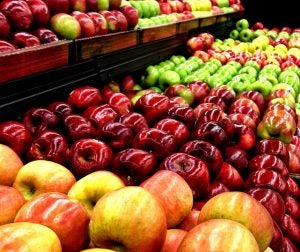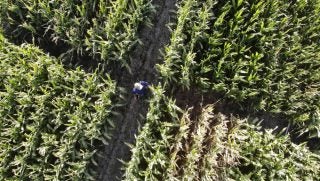Food waste, defined as the disposal of food that is safe to eat, is an astounding problem. The United States wastes around 40 percent of all food produced for human consumption — close to 2.5 trillion pounds. Yet the U.S. Department of Agriculture estimates that 34.2 million people are considered food insecure. That’s right — we casually throw away a over a million tons of food, even though our neighbors are hungry.
There are a number of ways food waste happens. Farms sometimes overproduce, and the excess is left in the field. Grocery stores may reject fresh produce that’s less than perfect. Consumers may rid cupboards and refrigerators with food older than its best-by stamp. And large portion sizes at restaurants mean plenty of food is left on the plate.
There are some groups and people trying to remedy the situation in unique ways. Take Cultivate Food Rescue, as an example. It saves good food otherwise destined for the trash bin by repackaging it into single-meal selections ready for the oven. Last year, the organization rescued almost 1 million pounds of food. (Full disclosure: I’m honored to serve on Cultivate’s board of directors.)

But there are also ways to preserve food before it gets that far in the supply chain. We’re all familiar with the wax grocers put on cucumbers and apples. There are other products that fight against spoiled food, like antimicrobial treatments and special packaging that controls oxygen, carbon dioxide, and moisture levels. These are all safe and effective ways to add longevity to fresh produce and reduce food waste.
But in the age of disinformation and social media, sometimes these food savers garner unwanted attention. This happened early in my blogging days to a product called Sprout Nip(r). A little girl’s science project went viral after she discovered her conventionally grown sweet potato wouldn’t sprout, while the organic version had no problem doing so. I teamed up with my friend and plant scientist Steve Savage to explain the product, how we know it’s safe, and explain why it’s important.
And almost a decade later, we’re seeing a similar attack on a product called Apeel. A viral Facebook post warned the users’ friends to avoid any produce with Apeel stickers. According to the narrative, Apeel helps fresh fruits and vegetables last longer, but the company won’t disclose what it is or how it’s made. It alleges that Apeel can’t be washed off the produce no matter how much water is used, or how hard the purchaser scrubs it. The worst thing is that it causes “serious eye damage” and allergic skin reactions. The poster even threw in a vague connection to Bill Gates for good measure.
Fortunately, the truth is much less scary. Apeel is derived from edible compounds found in a variety of foods. When applied to produce, it mimics a “peel” around the surface that keeps oxygen out and moisture in — precisely what’s needed to slow down aging. Regulatory agencies around the world — including Health Canada, the U.S. Food and Drug Administration, and the World Health Organization — have verified that it’s safe to consume. Best of all, it keeps the produce fresher longer.
As for Bill Gates, the foundation he shared with his wife awarded Apeel’s founders a grant to support its research and development. But he has no other connection to the company, and he certainly doesn’t own the company. Admittedly, although I may not always like his position on certain things, I’ve never understood why some find him to be the ultimate boogeyman.
So Apeel is a useful tool to safely and effectively extend the shelf life of fresh produce. That’s something we should all celebrate as we face a growing global population, climate change, and astronomical amounts of wasted food. Let’s not cut off our noses to spite our faces with ridiculous disinformation. Instead we should embrace any and all solutions in the fight for food security.
Amanda Zaluckyj blogs under the name The Farmer’s Daughter USA. Her goal is to promote farmers and tackle the misinformation swirling around the U.S. food industry.



